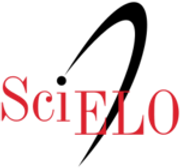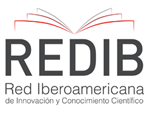Ethics and Malpractice Statement
The National University of Engineering has approved the Researcher's Code of Ethics (in spanish), Sanctions to the Researcher's Code of Ethics (in spanish) and the 1829-2018 Rectorate Resolution RS "Review of the authenticity of the research work, thesis, professional sufficiency works for the support of the same in antegrade and postgraduate" (in spanish) that guide the actions of the DEVENIR journal.
In that way, we identify as bad practices:
- Citation manipulation, for example: the misuse of secondary citations; the incorrect attribution of citations; the inadequate application of the citation standard; the subtraction or addition of words that might lead to misinterpretation of a quote; the excessive use of self citation or the detection of repetitive or redundant patterns when citing that might lead to any suspicion of misconduct.
- Plagiarism: when parts of the work of others are taken, transcribed, duplicated, paraphrased, etc., making them pass as one’s own ideas.
- Data Falsification or fabrication happens when this information is altered, included or omitted and misinterpretation of results might occur as a consequence.
- Disrespect for the privacy of others, for example: when the use of informed consent is omitted or unauthorized use of the image of third parties takes place.
- Redundant publication: use of parts of works already published as if they were unpublished material.
- The inclusion of authors who have not participated in the research or process of preparing the paper or the exclusion of authors who have participated in the research or process of preparing the paper.
Originality of the articles sent to DEVENIR
DEVENIR receives original research articles, review and/or opinion articles in the scientfic and academic areas related to built heritage. Each article submitted will be previously evaluated with an anti-piracy software.
In the cases in which the bad practices described above are found or others that provoke a reasonable and documented doubt about the originality of the article, the process will be as follows:
- The article will be rejected after the report of the Editorial Director, attaching the documentation that supports the analysis made in support of the decision taken.
- The author(s) will be notified in this regard.
- The author(s) will have a period of two weeks (15 business days) to make their disclaimers.
- These releases will be attached to the Editorial Director's report to be made available to the respective legal instances.
Authorship and contributorship*:
DEVENIR respects the order in which the authors arrange their appearance in the affiliation of the submitted paper. Regardless of whether it is an alphabetical order or volume of participation order, it is assumed that authors have previously agreed to that order and that they understand that they are responsible, in co-authorship, for the integrity of the submitted information. Furthermore, in the Originality Statement and Copyright Transfer Agreement, applicants are asked to identify all the authors and make a percentage distribution of their participation. Through this information the Journal expects to reduce the omission of colaborators (ghost authors), or their appearance (gift authors). In parallel, through the application of the first review filter, DEVENIR expects to obtain information that will confirm the data provided by the applicants.
In cases where there is doubt about the authorship or contributorship, authors will be asked to explain the situation. No withdrawal of authors will be done without having a note of acceptance of the person who is going to be withdrawn. When there are situations of physical or material impossibilities, for example, health problems or death, the editorial team will resolve according to the specificities of the particular case.
Appeals and complaints:
The Journal will attend and resolve arguments or appeals related to the non-publication of a paper and will seek to do so efficiently without this implying a commitment to publication.
When appeals are related to the result of a peer review, the well-founded arguments put forward by the authors will be valued, in case there is still doubt, a new reviewer will be asked to define the result.
When appeals are related to plagiarism, the journal will apply its own detection mechanisms to verify the complaint; if necessary, the opinion of an external expert will be considered. Every case will be resolved according to the corresponding institutional, national and international regulations.
Complaints related to the conduct of the Journal’s editorial or technical team members, will be addressed by the remaining members of the editorial team, if this were not possible or appropiate, the Journal will use the mechanisms and structures already established by National University of Engineering to address these complaints.
In all cases, it is expected that the person reporting the complaint will send an email DEVENIR’s address: devenir.faua@uni.edu.pe in which they will present their arguments in a concrete manner and will attach relevant evidence.
Conflicts of interest:
The Journal promotes that the authors declare any conflicts of interest as a transparency sign. Personal relationship, employment relationship, financing or support, etc., must be identified by the authors.
Author, reviewers and members of the editorial board and technical team of the Journal must indicate if there is any interest that may affect the effectiveness or objectivity of the tasks they performe for the publication. The authors will do so when submitting their paper; reviewers, upon receiving the request for peer review or at the time they identify any element that may influence its outcome, in these cases they must notify the Editor so he/she could be replaced by another reviewer.
If a conflict of interest is detected in a paper already published, authors will be asked to explain the situation and the clarifications considered necessary will be incorporated into the paper’s infromation.
Other information:
The results must be presented clearly, honestly and without fabrications, falsifications or improper manipulation of the data.
The authors, when appropriate, must present the methodology of their research in a clear, unambiguous way, so that the results can be confirmed and analyzed by the scientific community.
Publications derived from a single research project, thesis or second part of a previous paper, must be clearly identified to recognize the primary publication to which reference is made.
*This information was created for DEVENIR. It can be shared considering the terms of Creative Commons License (CC BY 4.0).
More information related to ethical issues can be reviewed in:
- Guide for authors by DEVENIR
- International regulations: Best Practice Guidelines for Journal Editors and International Standards for editors and authorsby Committee on Publication Ethics (COPE). Visit: http://publicationethics.org/about









